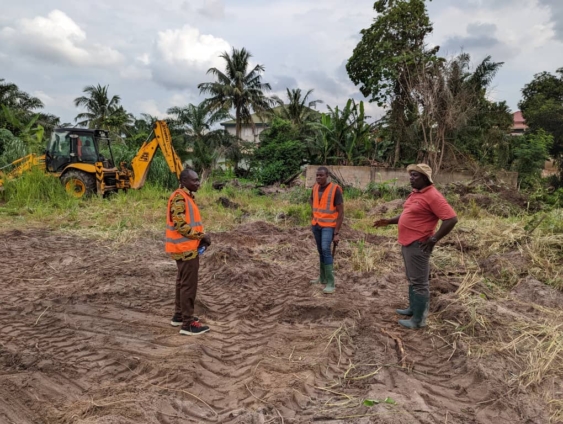The Crops Research Institute under the Council for Scientific and Industrial Research has commenced preparations for pioneering technology trials aimed at reducing methane emissions from rice production.
The initiative under the Agroecology and Circular Economy for Ecosystem Services (ACE4ES) project, marks a pivotal moment in advancing climate-smart farming practices in Ghana.
Research has proven methane emissions are a potent greenhouse gas that impacts the environment.
The project, funded by the Climate and Clean Air Coalition under the UN Environment Program, focuses on tackling methane emissions from flooded rice cultivation.
By integrating innovative methane reduction technologies such as alternate wetting and drying (AWD) systems and biochar applications, the Institute aims to mitigate environmental impacts while enhancing agricultural productivity.
Lead for the ACE4ES project, Dr Kwaku Onwona-Hwesofour Asante emphasized the importance of these trials in addressing climate change challenges in agricultural sectors.
He indicated that reducing methane emissions from rice fields is crucial for sustainable development and climate action in rice-producing economies.
"Through rigorous experimentation and collaboration with local farmers, we aim to identify practical solutions that balance environmental stewardship with food security," Dr. Kwaku Asante said.

"We are committed to fostering partnerships and knowledge exchange to scale up successful methane reduction strategies. This project not only contributes to global climate goals but also strengthens Africa’s resilience to climate impacts, benefiting farmers and communities alike," noted Dr Kwaku Asante.
The field preparations have involved meticulous site selection and soil preparation to ensure optimal conditions for the trials.
The rice technical team consisting of Dr Charles Afriyie-Debrah, Dr Clement Oppong Peprah, Prof. Raphael Kwame Bam, Dr Maxwell Darko Asante, and Dr Felix Frimpong played essential roles during these initial stages.
The CSIR-Crops Research Institute anticipates that findings from these trials will inform national policies and encourage widespread adoption of climate-smart agricultural practices across the region.
The project is starting in four African countries including Ghana, Nigeria, Benin and Tanzania.
As the project progresses, stakeholders remain optimistic about its potential to pave the way for sustainable agricultural development in Africa and beyond.
Latest Stories
-
Ghana’s women MPs pay courtesy call to Vice President Prof. Opoku-Agyemang following her medical leave
7 minutes -
TEWU of TUC appoints first female deputy General Secretary
11 minutes -
Nkrumah Memorial Park managers commend government for restoring Founder’s Day holiday
17 minutes -
Indian Prime Minister Narendra Modi to visit Ghana on July 2
19 minutes -
Manhyia South MP warns of dangerous agenda behind EC removal plot
21 minutes -
All set for Joe Mettle’s Praise Reloaded 2025
26 minutes -
Beyond Banking: ADB celebrates 60 years in Ghana with new tagline
42 minutes -
Tree planting is everyone’s business
2 hours -
Kinshasa to host first World Music and Tourism Festival, celebrating rumba
3 hours -
Today’s Front pages: Friday, June 27, 2025
4 hours -
Kamal Deen Sulemana agrees deal with Atalanta
4 hours -
COVID-19 remains a threat – GHS cautions public
4 hours -
Renewed clashes in Nkwanta South leave one dead, several injured
4 hours -
Delay not intentional, let’s maintain good faith – Ayew Afriyie appeals to GRNMA
5 hours -
Ghana makes significant improvement in the 2025 World Competitiveness Report
5 hours

